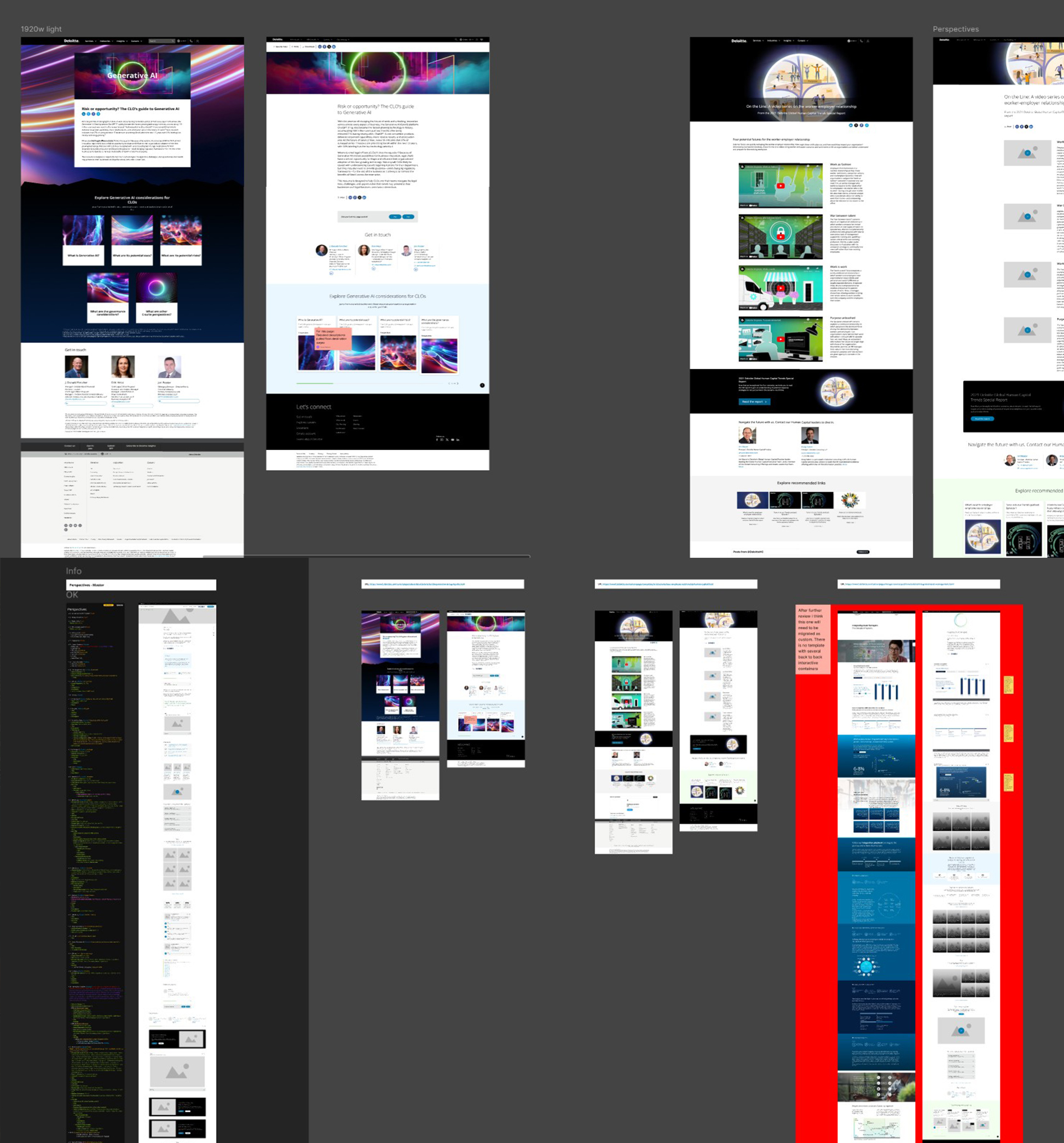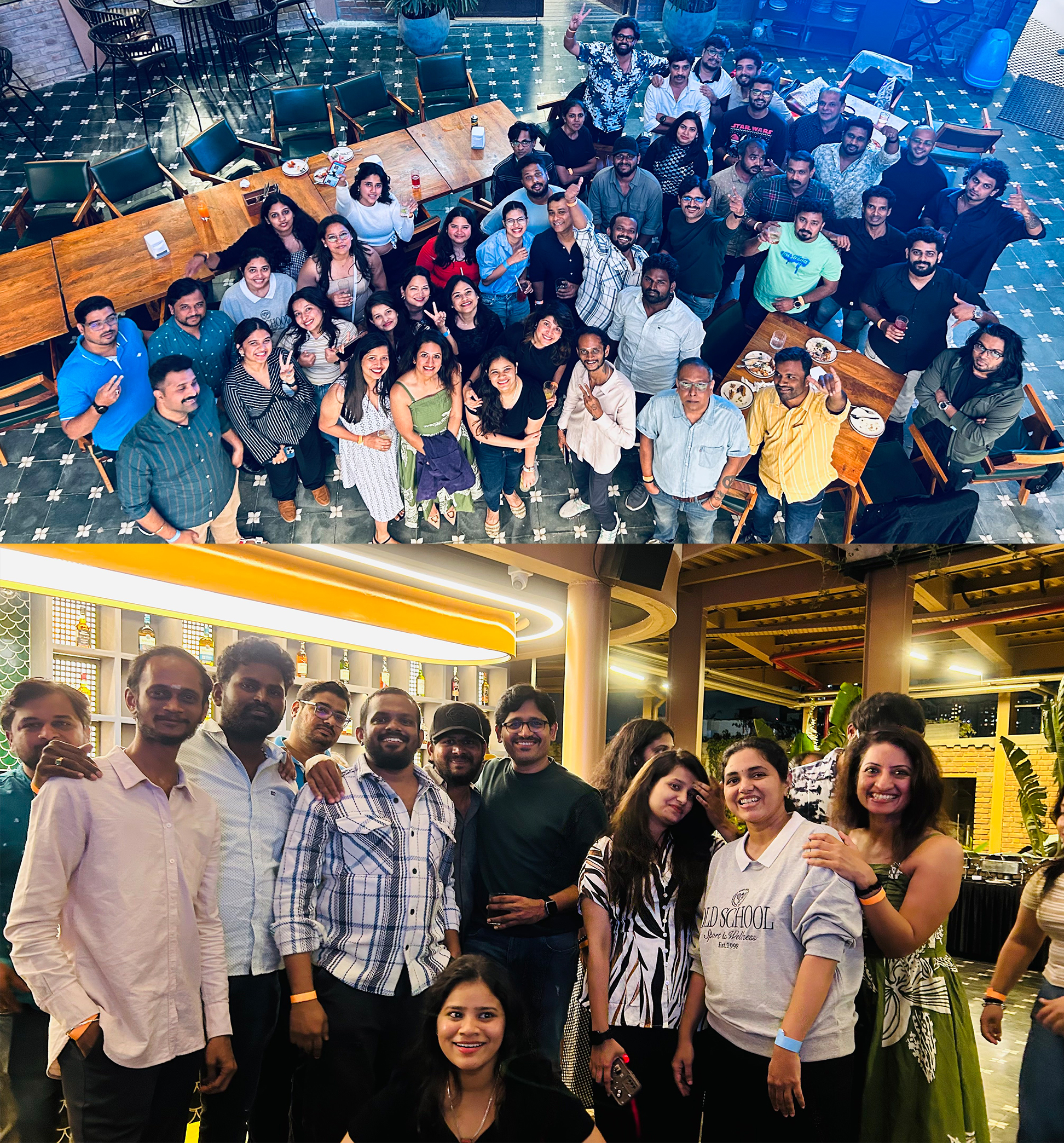Earlier this year, we successfully delivered the Deloitte DMOD Plinko website migration project, a
large-scale UX/UI initiative that impacted Deloitte teams across multiple regions. The project wasn't just
about redesigning screens—it was about transforming the overall user experience with scalable design
systems, improved accessibility, and optimized performance. Our team collaborated across design,
development, and content to ensure a seamless rollout through Adobe Experience Manager (AEM). The result?
Over 140 responsive screens launched, supporting 6+ global regions, with delivery completed two weeks ahead
of schedule.
🎯 My Role and Contribution
As a UX/UI Designer, my responsibilities centered around ensuring design excellence and consistency across
the platform. I led the creation of a modular, atomic design system in Figma, developed reusable UI
components, and ensured alignment with Deloitte’s global branding standards. I also conducted over 10
internal usability tests, collaborated with AEM developers for smooth handoffs, and optimized for responsive
behavior and accessibility. A key focus was on maintaining WCAG 2.1 compliance to deliver inclusive digital
experiences across devices.
📈 UX Impact & Key Metrics
Our efforts were validated by strong post-launch performance metrics. The task success rate improved from
62% to 90%, indicating more intuitive workflows. We reduced core screen load times by 30%, enhancing user
efficiency and reducing bounce rates. Time on task dropped by 34%, showing improved usability and
navigation. Finally, our stakeholder satisfaction score rose from 7.2 to 9.1 out of 10, reflecting increased
confidence and alignment with business goals.
🧠 UX Principles & Practices Followed
We followed a user-centered design approach, iterating based on continuous feedback from stakeholders and
internal users. Our component-based strategy using Figma helped ensure consistency across 100+ screens while
speeding up development. Mobile-first responsiveness and accessibility were core to every design decision,
ensuring the experience performed equally well on desktop and mobile. Cross-functional collaboration played
a critical role, with weekly syncs between designers, developers, and QA to maintain quality and momentum
throughout the sprints.
🎉 The Launch & Team Celebration
The successful launch was met with positive feedback from both end users and global leadership. To celebrate
the achievement, our team gathered for a well-deserved dinner outing, marking the culmination of months of
collaboration, iteration, and hard work. It was more than just a project—it was a shared milestone that
highlighted the power of teamwork, design thinking, and purpose-driven execution.
🧩 Final Thoughts
The Deloitte DMOD Plinko Project was a reminder that mastering user experience is about much more than
design tools—it's about solving real problems with empathy, strategy, and data-driven decisions. By aligning
design systems with business objectives and user needs, we were able to deliver measurable value at scale.
This project stands as a powerful example of how enterprise UX, when done right, can be both meaningful and
impactful.

UI/UX
Figma
User Research
Leave A Reply
Your email address will not be published. Required fields are marked *

